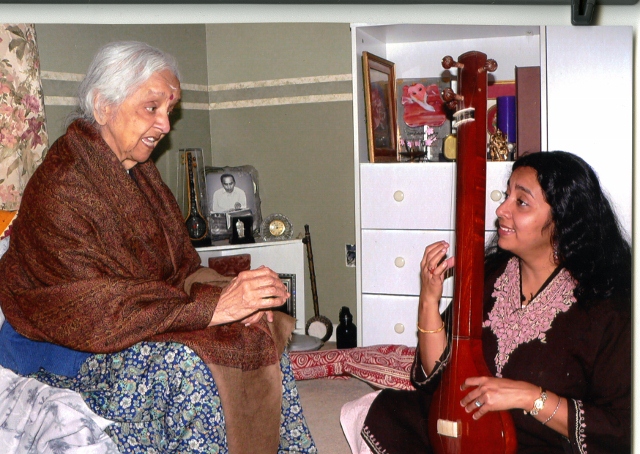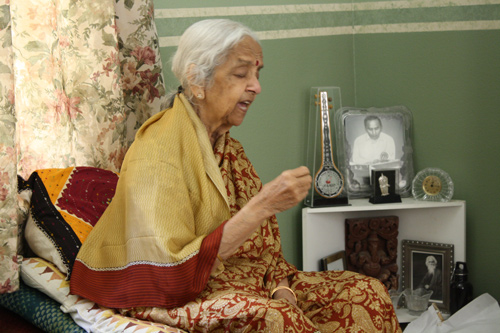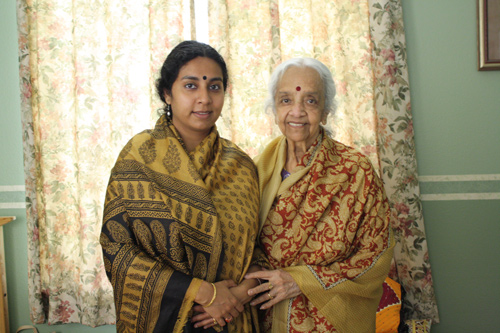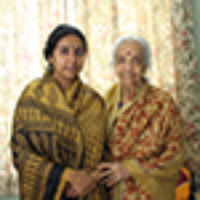
Lakshmi Shankar
North Indian Hindustani vocals
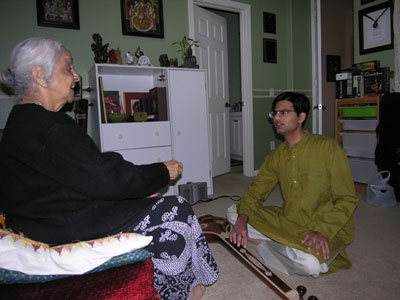 The vocals are a very important part of North Indian Hindustani classical music. Today, the most widely performed Hindustani vocal form is khayal. Khayal, meaning imagination or thought, emerged a few hundred years ago in India’s royal courts. As its name suggests, it affords tremendous scope for the musician to improvise within the framework of the raga (melodic form), tala, (rhythmic cycle), and composition.
The vocals are a very important part of North Indian Hindustani classical music. Today, the most widely performed Hindustani vocal form is khayal. Khayal, meaning imagination or thought, emerged a few hundred years ago in India’s royal courts. As its name suggests, it affords tremendous scope for the musician to improvise within the framework of the raga (melodic form), tala, (rhythmic cycle), and composition.
Hindustani vocal music also includes a number of so-called “light classical” forms such as thumri, kajri, dadra, and bhajan. In a concert performance, khayal renditions will typically be followed by one or more light classical renditions. Thumri is a folk-inspired song form in which the artist is permitted greater flexibility with the raga rules. Dadra is essentially a faster version of thumri. Bhajan consists of devotional verses set to music.
Lakshmi Shankar (1926-2013), who began singing at the age of 3, made her concert debut in Hindustani vocal music in 1957 in Mumbai, India. Prior to her learning Hindustani music, she was also trained in classical Bharata Natyam dance and Carnatic music, the classical music of Southern India. Lakshmi was among the first Indian vocalists to perform outside of India. Bringing an end to an over-50-year performance career, Lakshmi retired from performing in 2008 and began teaching fulltime.
Lakshmi was a master artist in ACTA’s Apprenticeship Program in 2012 with apprentice Dayita Datta. The apprenticeship increased Dayita’s skill in the thumri, kajri, and bhajan genres of Hindustani music, enabling her to perform them at a concert level.
Lakshmi participated in ACTA’s Apprenticeship Program in 2010 with apprentice Ashwin Rode. The apprenticeship built up Ashwin’s ability to perform khayal ragas at a concert level, emphasizing improvisational elements and clarity in execution of musical ornamentation. Laskshmi taught Ashwin rare compositions composed by the celebrated Ravi Shankar, compositions which were personally taught to Lakshmi by Ravi Shankar during her extensive career.


